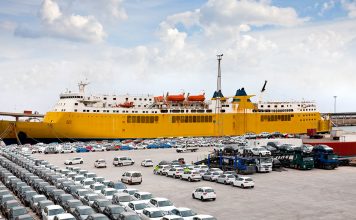Since time immemorial, entrepreneurs have been turning problems into opportunities.
Kenyans should be able to leverage on her problems to create opportunities but somehow our policy makers find ways of sustaining problems rather than solving them.
It is an open secrete that there is a problem in Kenya’s transport sector. The bus ride-hailing services that the National Transport and Safety Authority (NTSA) recent banned is an entrepreneurial opportunity with the potential to bring sanity to the troubled transport.
It must be remembered that the re-organisation of the Matatu industry into Savings and Credit Cooperative Societies (Saccos) was to address a major problem of the sector’s exponential growth of the sector without proper regulatory framework.
Service delivery declined as cartels and other rogue operators started to disregard passenger and road safety requirements.
The Sacco business model that was considered as ‘A knight in shining armour’ has not changed the DNA of the matatu industry in Kenya. They defiantly break traffic rules and disregard passenger safety.
The anticipated structured institutionalization of the sector to guarantee internal self-regulation mechanism has not worked. There are no signs of creating uniform operational standards across the sector. In a free market economy, the arrangements largely driven by the Government have no basis in economics. A misdemeanor by a member of the Sacco leads to a collective punishment.
There are no studies to show that such unorthodox practices can function as a deterrent to bad behaviour that is associated with the sector. The best solution would have been to leave the sector alone to evolve and eventually an entrepreneurial disruption to bring order emerges.
Further, the obvious knee-jerk reaction by NTSA undermines the Jubilee government’s promise of a digital economy.
The argument that these bus ride-hailing startups did not have the correct licence does not hold water at all because requiring them to hold alternative licence while they have a PSV licence is both discriminatory and restrictive.
By nature, startups are never fully formed. Their development, like any innovation, is iterative until the final product is realised. Creativity and innovation that are key to economic development demand that regulators understanding the fact that there will never be innovation without challenging the status quo. We are rushing to regulate nascent innovations without giving them a chance to grow into viable businesses that can be regulated and taxed. These prior regulations are impeding innovation and growth to the detriment of our economy.
It is important to remember that had the Wright brothers been regulated out of existence when they first flew an aircraft, there would be no airline industry.
We have travelled the path of innovation before with the implementation of M-Pesa without any policy and regulatory framework.
Many more solutions will come but if regulators stand in the way, we shall undermine our future competitiveness. The objective of regulation is to ensure fairness, reasonable pricing, industry expansion, and service reliability.
With bus-hailing services, customers are finally happy that for the first time, they have a mass transport solution that respects their dignity.
It is imperative that we have order in the transport sector to attract more investments, enable taxation and facilitate accurate measure economic performance of the country.
It is in the interest of matatu owners that they embrace emerging business models and play a major role in developing these models to the extent of scaling them to the rest of the world.
Opposing their development is a self-defeating strategy since nobody can ever stop a technological solution that has proved convenient to consumers.
In banning the bus ride-hailing services, the regulator erred. In the era of digital economies and rapidly changing business models, there is a case for innovative solutions that enhance the country’s productivity.
Without violating consumer rights, these companies ought to be allowed to pursue the noble cause of disrupting the chaotic transport sector in Kenya.
SOURCE: businessdailyafrica.com







![Top 20 Used Cars to Avoid Buying in Kenya – [PHOTOS]](https://kenyacarbazaar.com/blog/wp-content/uploads/2013/11/top-used-unreliable-cars-to-avoid2-80x60.jpg)



![Here are some of the best tuned cars in kenya by state of the art garages [PHOTOS]](https://kenyacarbazaar.com/blog/wp-content/uploads/2013/11/29402_10151301757042065_340470732_n-e1384498044289.jpg)

![Top 20 Used Cars to Avoid Buying in Kenya – [PHOTOS]](https://kenyacarbazaar.com/blog/wp-content/uploads/2013/11/top-used-unreliable-cars-to-avoid2-100x70.jpg)





